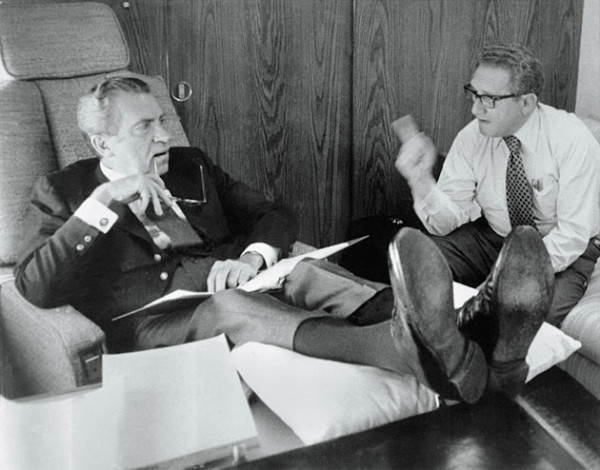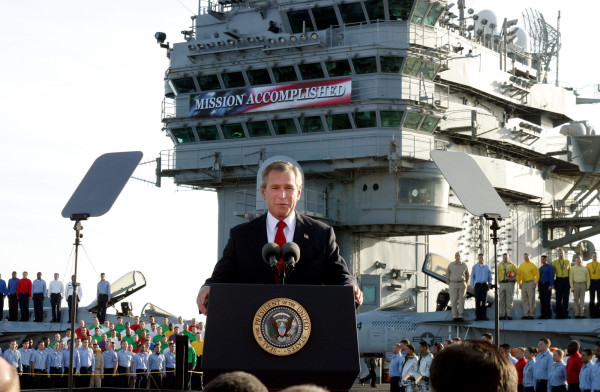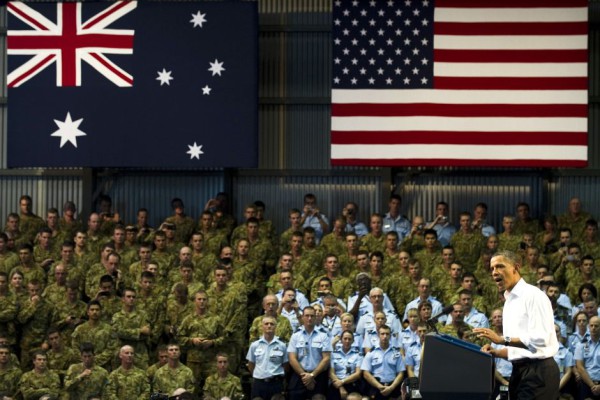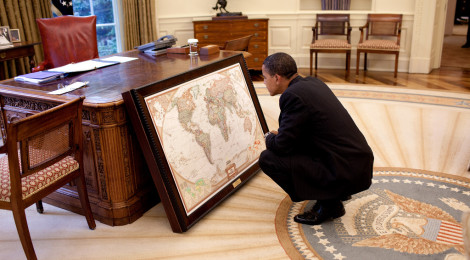In time of declining power, one looks to past glories for lessons forgotten. This is all too true for the United States, which has suffered a recent spate of economic malaise and the growing power of newer rivals like China. Policymakers, lawmakers and even the American public look back at their illustrious past to find the clues that may solve the puzzle of what seems to be the inevitable loss of American global power. In essence, they search and argue for the answer to their most fundamental question: What went wrong?
To get an answer to that question, one must understand how the United States became the sole hegemon on the world stage. Throughout the 19th century and well into the 20th century, the United States took a concerted effort to not only secure its position as the regional hegemon over the Western Hemisphere but also to prevent regional hegemonies from arising in other regions around the world. Such a long-term policy decision provided the United States greater security by preventing the rise of a potential rival in its near abroad, and insulating itself from the machinations of overseas powers.
This required the United States to both maintain the balance of power in different regions of the globe and also to make it known around the world that American military force would be applied if outside powers sought to oppose American hegemony in the Western Hemisphere. Thus in terms of the former, American actions against Imperial Japan during the Second World War and the Soviet Union during the Cold War were all for the successful attempt to prevent one nation from controlling East Asia and Europe respectively. Also, American involvement in the Cuban Missile Crisis, and CIA participation in the 1973 ouster of a Soviet-friendly government in Chile, were all done to protect the American sphere of influence from foreign powers.

All these strategies and tactics that were used by American policymakers largely stemmed from realism, the age-old school of thought in international relations which accounted for a global system that was dominated by nation-states who actively accumulated larger amounts of power for the sole purpose of deterring other nations from threatening its existence. Realism showed that only a temporary period of peace could be achieved when the power of two or more states mutually deterred the competing nations from aggressive actions. In essence, realism was ethically dubious as it recognized the fact that the security and survival of the state solely depended on the relentless pursuit of power rather than acting in a moral fashion.
However for a democracy like the United States, which prides itself as a global force for liberty, implementing foreign policy on realist terms has often irked large segments of the public and even many American policymakers. Throughout its history, the United States has often felt the temptation to implement its democratic ideals on a global scale, even if the consequences proved detrimental to American security and international stability. In the past, when American power was directly rivalled by other powers, these goals had to take a back seat to more realist pursuits but, since the end of the Cold War, when the United States became the undisputed power on the global stage, this temptation of reconstructing the international system along American ideals of governance has shifted US foreign policy interests from one that was strategic in nature to one that is overly altruistic.
As a result, between the 1990s and well into the 2000s, American power has been squandered and the world has fallen into further instability, as the United States’ new project of global liberty has become a nightmare for all concerned. The American-backed push for open markets has seen mercantilist nations like China gain unfair economic advantages over the United States by manipulating currency markets and subsidizing their export industries.

Furthermore, in 2003, when American troops invaded Iraq for the purpose of replacing the tyrant Saddam Hussein with a democratic government, the Middle East went into a tailspin as Iraq, a bulwark against Iranian power, became weakened and gave Iran a greater hand in pursuing its quest to attain regional hegemony in the Middle East. Thus proxy wars multiplied, across an already troubled region, as Iran was more emboldened to directly rival Saudi Arabia, an American ally, for supremacy over the Middle East.
With the rise of China and greater volatility in the Middle East, the United States has woken up from its rather fantastical dream of creating an ideal world. For instance, the new policy move “pivot to Asia” has sought to reassert American involvement in Asia-Pacific by making a concerted effort to prevent the possibility of Chinese hegemony over Asia. Stationing military assets in Australia and the Philippines alongside those in Japan and South Korea has helped bolster the ability of the United States to directly check China’s growing power.

Also, in a surprising move, the United States has further increased rapprochement with its former enemy, Vietnam by lifting the ban on sales of some American military exports to this Southeast Asian nation. Of course, there were criticisms over Vietnam’s poor human rights record but it seems the United States has found that the prospect of a Chinese rival supersedes the human rights record of a possible ally.
However, these are only small steps and it is uncertain whether these will be enough to reverse the seemingly downward decline in American fortunes. Furthermore, growing isolationism on the domestic front and political gridlock do very little for American power as it shows the world that the global leader is indecisive, dysfunctional and unwilling to hold its position as the world’s only superpower. Hence, like any person or entity facing numbing decline, the United States must return to its roots in order to secure a brighter future for itself.




